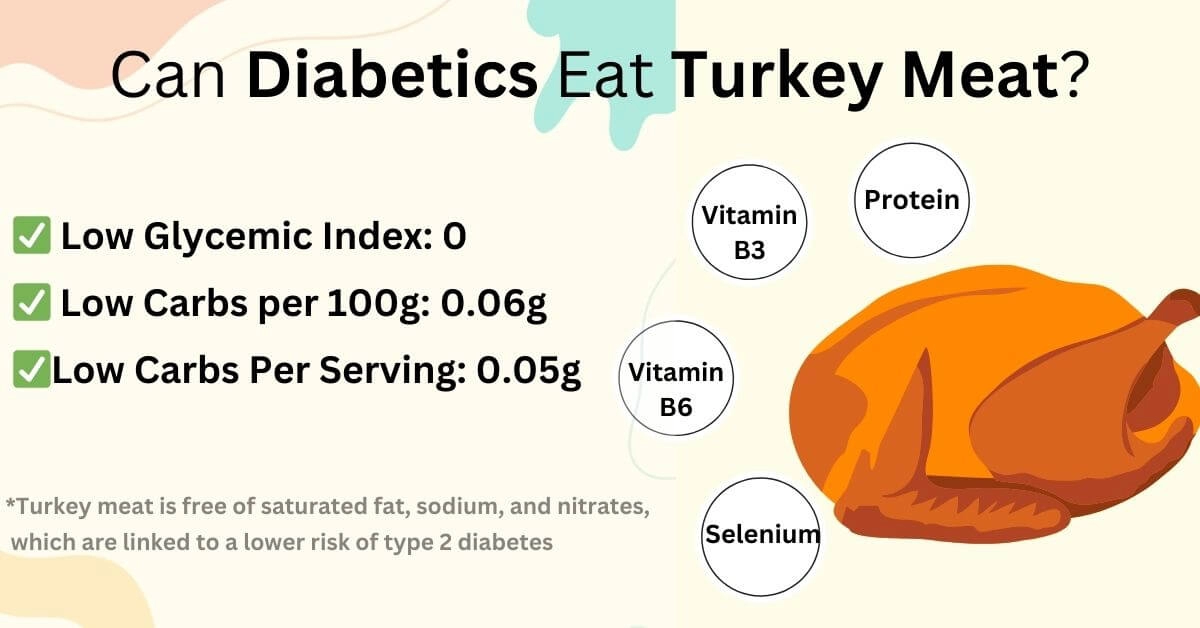Turkey Meat and Diabetes - Is It Good For Diabetics

Introduction
Individuals with diabetes must be on a specific diet to regulate their blood sugar levels and not cause glucose spikes. Consuming protein, specifically lean protein, is one of the ideal ways to reduce overall caloric intake, increase satiety, and reduce post-prandial glucose spikes.
We'll talk about the benefits and downsides of using turkey meat on blood glucose levels.
Glycemic Index and Carbohydrates
Although deli turkey isn't the best option, unprocessed turkey breast without the skin is excellent. Turkey breast contains almost no fat and no saturated fat. According to the International Tables of Glycemic Index, the glycemic index of turkey meat is considered 0 due to its low level of carbohydrates.
The carbs content of turkey meat is only 0.06gg per 100g and 0.05g per serving (85g). Turkey meat is a low-calorie protein source, high in niacin and selenium, which might have beneficial effects on blood glucose levels.
Turkey meat will not raise your blood sugar levels due to its low carbs and GI index.
Besides, turkey meat has no saturated fat, sodium, or nitrate, which is associated with a decreased risk of type 2 diabetes mellitus. Just be mindful of consuming it without skin, and don't overcook it.
To find glycemic index values of 350+ pages, you can visit the Glycemic index chart page.
Type-2 Diabetes
According to one extensive study, replacing red meat consumption, mainly processed red meat, with other protein sources, such as turkey or chicken meat, is associated with a lower risk of type 2 diabetes mellitus. Researchers followed 27,634 males and 46,023 females during the diet and calculated HRs and 95% CIs for the T2DM risk associated with replacements of 1 daily serving of red meat with another protein source (1).
Another study concluded that eating poultry meat, including turkey, as part of a vegetable-rich diet lowers the risk of developing overweight and obesity, cardiovascular disease, and type 2 diabetes mellitus (2).
Cooking meat at lower temperatures or for a brief period of high heat, such as with slow cookers, baking, and stir-frying, is recommended for people at risk of type 2 diabetes. High-heat and open-flame cooking methods such as grilling, barbecuing, broiling, and roasting have been linked to an increased risk of type 2 diabetes (3).
Turkey meat is high in selenium. It falls in the range of the top 32% of foods as a source of selenium. Some studies suggest that selenium may play a protective role against type 2 diabetes due to its essential role in oxidative stress protection (4).
In summary, those with diabetes can consume turkey meat. But remember to avoid turkey meat skin or smoked, dried, or salt-cured meat.
